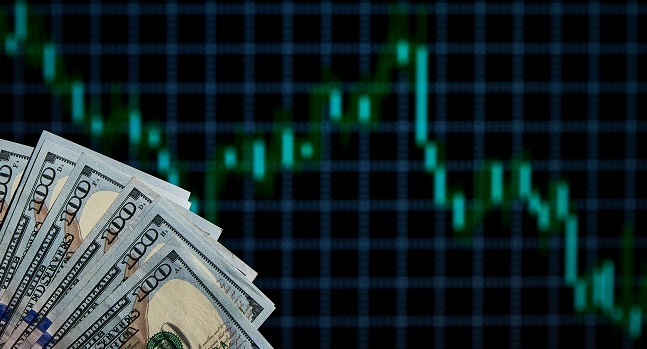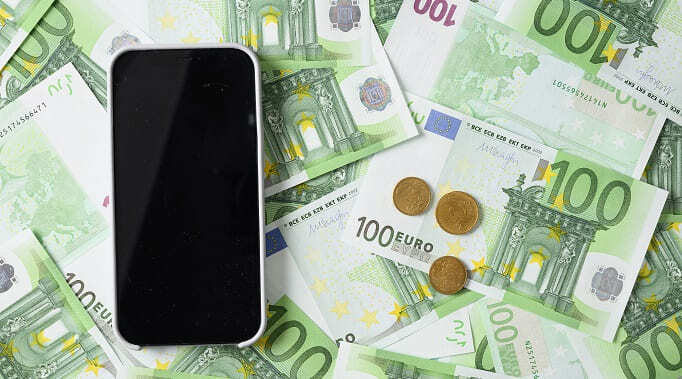
 Data Structure
Data Structure Networking
Networking RDBMS
RDBMS Operating System
Operating System Java
Java MS Excel
MS Excel iOS
iOS HTML
HTML CSS
CSS Android
Android Python
Python C Programming
C Programming C++
C++ C#
C# MongoDB
MongoDB MySQL
MySQL Javascript
Javascript PHP
PHP
- Selected Reading
- UPSC IAS Exams Notes
- Developer's Best Practices
- Questions and Answers
- Effective Resume Writing
- HR Interview Questions
- Computer Glossary
- Who is Who
What is the full form of FOREX?
Introduction
FOREX (Foreign Exchange) market, also referred to as the currencies market, forex, or FX, is a without a prescription global market where various currencies' exchange values are decided. Participants can buy, sell, trade, and speculate on the various exchange rates of various currency pairs on these markets.

The foreign currency markets are made up of banks, forex dealers, commercial enterprises, governmental organizations, investment management firms, investment companies, consumer forex dealers, and investors.
It is unquestionably one of the biggest markets in the entire globe and only shuts down on the weekends, with a worldwide network of financial hubs working around the clock.
Each currency's "value" is determined by the market value of the other currency in the pair because currencies are always exchanged in pairs.
Importance of FOREX
The currency market is the biggest and most affordable of all the financial markets. However, the general population has a difficult time understanding its purpose. Contrary to a stock market, which is primarily concerned with supporting well-established firms in raising money from a sizeable number of investors, the Forex market serves a range of functions.
Understanding the role that the Forex market plays in a country's economy might help you appreciate the market's importance. The main goal of the market for foreign currencies is to supply the necessary foreign money to buyers, sellers, and travelers. Contrary to equities markets, the currency market is not a market that focuses on investors. An equity market needs investors to be functional.
Instead, in order to make international investments, an investor needs the Forex market to exist. The market for currencies will function regardless of whether investors or speculators participate. The following essential tasks, which power a nation's economy, depend on the Forex market.
Players in the FOREX market
Banks The majority of daily trading volume is accounted for by commercial banks, who dominate the currency market. They conduct trading on behalf of their customers, who include central banks, multinational enterprises, and other financial organizations. Commercial banks engage in trading for their personal accounts as well, profiting from changes in exchange rates. They can swiftly and accurately execute deals thanks to their extensive trading desks as well as access to actual time market data.
Hedging funds Private investment vehicles known as hedge funds work to maximize profits for their investors. To accomplish their objectives, they employ a range of investing tactics, including FX trading. With a sizable share of the trading activity, hedge funds are key participants in the FX market. They have possession of advanced trading platforms and work with highly qualified traders who seek trading opportunities using modern analytics and technology.
Retail business owners Retail traders are individual investors who trade forex on websites that brokers provide. They trade with relatively tiny sums of capital and make up a relatively minor portion of the forex market. However, because of the ubiquitous accessibility of trading platforms on the Internet and the abundance of training resources, their overall volume of trading has been rising quickly in recent years. To find trading opportunities and use different trading methods including scalping as well trading on swings, and position trading, retail traders frequently use both technical as well as fundamental research.
Trading in the FOREX market
Everywhere in the world, the Forex market is accessible twenty-four hours a day, seven days a week. In the past, only governmental entities, major corporations, and hedge funds participated in the foreign exchange market. Trading currencies is now as simple as clicking a mouse, and usability is not a problem.

People can open accounts and exchange currencies on the platforms of several investing firms. This is not the same as going to a cashier to exchange money. There is no actual handing over of money; the process is totally computerized.
Instead, traders take a position in a certain currency in the hopes that there will be some positive trend or increase in the currency they are purchasing (or loss if they are sold) so that they can profit.
Conclusion
The forex, sometimes known as FX, is the name given to the global currency exchange market. Therefore, it determines the extent to which one currency is valued in contrast to another in the real world.
Forex rates govern how much money a traveler gets when converting one currency to another. Forex rates have an impact on international trade as well because companies that buy or sell must account for currency fluctuations in their cost estimates. By increasing or decreasing the price of imported components, the foreign currency market necessarily has an impact on consumer prices.
FAQs
Q1. What Distinguishes the FOREX Differ From Other Markets?
Ans: The forex market is decentralized. It does not have a physical home, a manager, or an owner. There are no central authorities or clearinghouses in charge of managing the currencies. As opposed to the supplies, futures, or options markets, traders are not subject to the same rigid standards or rules.
Q2. What kinds of FX marketplaces are there?
Ans: The spot, forward, or futures markets are the three different markets where forex traders can transact. The spot market is the Forex market which is the simplest to comprehend. The spot rate is the exchange rate in effect at the moment. An exchange of currencies in the spot market is a deal to trade a particular currency for one at the going rate.
Q3. Do commercial and investment banks transact in foreign exchange?
Ans: Commercial and investment banks still do the majority of currency trading on their client's behalf. There are other opportunities for both experienced and new investors to trade currencies, though. The majority of the forex market is made up of the spot, forward, and futures exchanges.

